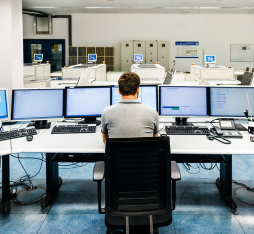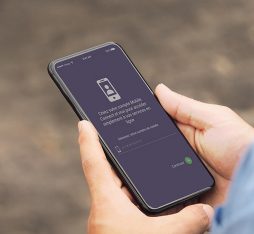In the space of a few years, digital technology has revolutionised our habits: online shopping, data storage, communication via social networks, etc. Each time we open an app, browse a website or use a connected device, we are allowing an amount of data related to our habits, preferences, relationships, home or even our location to leak out into cyberspace.
Who uses Big Data? How is it used? Security and privacy are at the heart of internet user’s concerns. According to the Digital Consumer Survey carried out in 2015 by Accenture, 44% of consumers do not feel confident that their personal data is being protected online. However, a vast wealth of information lurks in the data available which can, for instance, give rise to the creation of new and useful devices for consumers.
To take advantage of this, companies must create the right conditions to boost consumer confidence in data exploitation. When we talk about the term “digital trust”, according to the Digital Trust Alliance, it refers to “a digital environment where the consumer is informed about the protection of their rights and is confident in their actions”. Companies are being increasingly proactive about building this confidence, by guaranteeing data protection, bringing transparency to its usage, but also, by developing innovative solutions.
The essential data protection
The main role of companies is to ensure data is protected. In this respect, the legal framework is increasingly strong, particularly with the implementation in May 2018 of the European directive known as the General Data Protection Regulation. However, corporate ethics should go beyond the regulatory framework. There are a number of ways to limit the risk of data theft or unauthorized use.
Internally, this involves a rigorous selection of technologies and technical partners as well as ensuring that employees are aware of the issue. The company must also regularly conduct self-assessments, for example by organizing committees to examine the potential threats to any new service developed.
In order to combat external risks, the company must maintain a very active watch in order to stay abreast of the topics being highlighted by the competent authorities such as the CNIL (France’s data protection commission – Commission Nationale de l’Informatique et des Libertés).
It is also about investing in research and innovation to anticipate the developments in cybercrime techniques. For example, at the 2016 research fair, Orange presented a Behavioural Authentication System. It observes the user’s behaviour on a smartphone (movements, movement rhythm) and is able to continuously authenticate the user without having to ask for a password. The solution has been developed to mitigate the risks associated with password piracy and therefore unauthorized access to personal data.
The role of the company is to support customers in digital-related issues by actively listening and responding to their needs. The real challenge is developing systems that allow users to control their data in a clear way and thus create the conditions for developing trust. For Orange, the theme of “trust and security” is one of the nine research areas “to tackle current and future technological transformations and invent tomorrow’s uses”.
Appropriate use of location tracking
Ultimately, Big Data is never better utilised than when it is used to benefit its consumers. The aim is for companies to use the data collected to create innovative services that can offer real benefits to their users. To help them to get to know their customers better, gain knowledge, get organised, interact with others, anticipate their needs, etc.
As a consequence, Google has launched the Trusted Contacts app intended to reassure a user’s loved ones by sharing their location in case of an emergency. Any people defined as trusted contacts (family, close friends) can also ping the user for their location through the app. In the event that they do not manually respond, the app will automatically share their location, or, the last known location of their phone before their connection dropped; an effective way to use location tracking.
La Poste, meanwhile, has launched Digiposte +, a type of digital personal assistant. The app enables users to store, manage and archive all documents needed for the administration of daily life and can be shared with family members; bills, statements, pay slips, certificates, etc. Once the user has provided consent, Digiposte + automatically searches through all of the online documents, updates them and organises them into different folders. The app also alerts the user to deadlines and assists the user with procedures; to renew identity documents, sports club membership, rental contracts, etc.
Better ways to communicate with your nearest and dearest, organise yourself effectively, optimise the management of your home… By putting Big Data at the service of consumers and the public, and technology at the service of society, new initiatives are multiplying. The ultimate goal is to create the right conditions for trust within the digital society, so that users are more inclined to share their personal information as they recognise the benefits that can be reaped.











